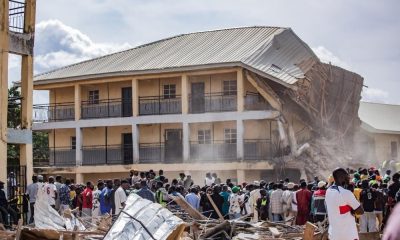For the second time in less than six months, a Boeing 737 MAX 8 has crashed minutes after take-off and killed everyone on board, raising fresh questions about the safety of a model that is crucial to the US giant’s future plans.
The latest accident is a major blow for Boeing, whose MAX carriers are the latest version of the Boeing 737, its bestseller of all times with more than 10 000 aircraft produced.
China – an important market for Boeing – became the first country to ground the 737 MAX 8 on Monday, signalling that other nations could follow suit.
On Sunday, the 157 passengers and crew members of a 737 MAX operated by Ethiopian Airlines were killed. Last October, the same model of plane, operated by Lion Air, crashed in Indonesia, killing 189.
While Teal Group expert Richard Aboulafia said it was “too soon to make any kind of meaningful comment”, another industry expert stressed the similarities between the two incidents.
“It’s the same plane. Like Lion Air, the [Ethiopian Airlines] accident took place shortly after take-off and the pilots signalled they were experiencing problems, then the plane crashed. The similarities are clear,” the expert added, requesting anonymity to speak freely on the matter.
Chinese aviation authorities also noted the “similarities” between the two deadly incidents, saying operations would only resume after “confirming the relevant measures to effectively ensure flight safety”.
Boeing has delivered 76 of the aircraft to Chinese airlines, and another 104 are on order, according to data from the company’s website.
But Michel Merluzeau, director of Aerospace & Defense Market Analysis, noted that “these are the only similarities, and the comparison stops there as we do not have any other reliable information at this juncture”.
Since the Lion Air accident, the 737 MAX has faced growing scepticism from the aviation community. The programme had already encountered problems during development.
In May 2017, Boeing had halted 737 MAX test flights due to quality concerns with the engine produced by CFM International, a company jointly owned by France’s Safran Aircraft Engines and GE Aviation.
“MAX is a very important programme for Boeing in the next decade. It represents 64% of the company’s production to 2032, and has significant operational margins,” said Merluzeau.
He said the next 24 hours are “key” for Boeing to manage the crisis with both travellers and investors worried about the reliability of its plane.
The expert who requested anonymity said Boeing will likely face some backlash in the markets, but the damage will likely be limited for the group, whose only significant competitor is Airbus.

 Latest1 week ago
Latest1 week ago
 Business1 week ago
Business1 week ago
 Latest1 week ago
Latest1 week ago
 Latest1 week ago
Latest1 week ago
 Business1 week ago
Business1 week ago
 Business1 week ago
Business1 week ago
 Football1 week ago
Football1 week ago
 Business1 week ago
Business1 week ago

